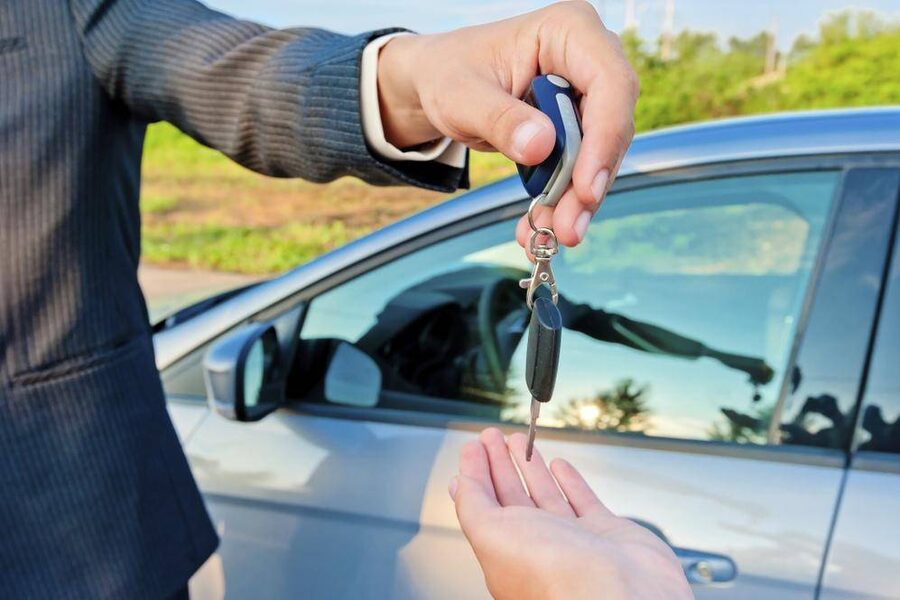
The Pros and Cons of Buying a Car from a Dealership vs. Private Seller
When it comes to purchasing a car, two main options often come to mind: buying from a dealership or buying from a private seller. Each has its advantages and drawbacks. But what’s the best option for you?
Let’s break down the pros and cons of each, so we can make a more informed decision.
Buying a Car from a Dealership
Buying a car from a dealership is the most common route for many buyers. Dealerships offer a variety of makes and models, and they tend to provide certain benefits that make them appealing.
Pros of Buying from a Dealership
- Wide Selection
Dealerships often have large inventories. This means you can compare different models, makes, and colors in one place. You may also find new cars, certified pre-owned cars, and even used cars that have been thoroughly inspected. - Warranties and Guarantees
One of the biggest selling points of dealerships is the warranty. New cars come with manufacturer warranties, and used cars often come with dealer-provided warranties or extended service contracts. This can provide peace of mind, knowing you’re covered if something goes wrong after purchase. - Financing Options
Dealerships often offer financing options. They work with banks or other financial institutions to help you secure a loan with competitive interest rates. This can save you time compared to getting a loan from your own bank. - Regulated Transactions
Dealerships are licensed and regulated by the state. This ensures they follow the law and handle transactions more professionally. Buying from a dealer reduces the risk of scams or fraud that may occur when dealing with a private seller. - Trade-ins
If you have an old car to sell, many dealerships will accept it as a trade-in. This can make the process smoother and more convenient, as it’s one less thing you need to worry about.
Cons of Buying from a Dealership
- Higher Prices
The most significant downside of buying from a dealership is the cost. Dealers need to make a profit, which means their prices may be higher than a private seller’s. You may also have to pay additional fees such as documentation, delivery charges, and taxes. - Sales Tactics
While some dealerships are honest, others can be pushy. It’s not uncommon to encounter salespeople who pressure buyers into making decisions faster than they’re comfortable with. This can lead to regret or impulse purchases. - Less Room for Negotiation
Though haggling is possible, dealerships often have fixed pricing. Private sellers may be more flexible with their asking price, giving you more opportunity to negotiate a better deal.
Buying a Car from a Private Seller
Buying a car from a private seller offers a different experience. These transactions tend to be more personal and can save you money, but they also carry certain risks.
Pros of Buying from a Private Seller
- Lower Prices
Private sellers typically offer lower prices than dealerships. Since they don’t have overhead costs or need to make a profit margin like a dealership, they can often sell for less. - Flexibility in Negotiation
Private sellers are usually more willing to negotiate on price. If you’re a skilled negotiator, you might secure a great deal and get the car at a price lower than the initial asking amount. - Less Pressure
When dealing with a private seller, the buying experience tends to be more relaxed. There are no high-pressure sales tactics, and you can take your time to decide without worrying about meeting a salesperson’s quota. - Direct Communication with the Owner
Buying from a private seller gives you the opportunity to speak directly with the car’s owner. You can ask about the car’s history, maintenance, and any issues it may have had, getting a personal account of how the car was treated.
Cons of Buying from a Private Seller
- No Warranties or Guarantees
Unlike dealerships, private sellers are not required to provide warranties. If something goes wrong after the purchase, you’re on your own. It’s essential to inspect the car thoroughly and possibly have a mechanic check it before buying. - Limited Financing Options
Most private sellers expect you to pay in full at the time of purchase. Unless you have cash on hand or can arrange your financing independently, paying for a car from a private seller may be more difficult than securing a loan at a dealership. - Potential for Scams
While many private sellers are honest, there’s also a risk of encountering scams. Without the regulations that apply to dealerships, fraud can be a concern. Always perform due diligence when buying from an individual. - Limited Selection
Unlike dealerships with large inventories, private sellers have fewer cars available. You may not find the exact model, color, or year you want.
Car Shipping: A Critical Factor When Buying from a Private Seller
One often-overlooked aspect of buying a car from a private seller is the issue of car shipping. If the car you want is located in another state or city, you’ll need to figure out how to get it home. While dealerships usually handle this as part of the sales process as they usually partnered with reputed across country car shippers, shipping a car from a private seller is something you’ll need to manage yourself.
Fortunately, there are many options for car shipping. You can use a professional auto transport company to have the vehicle delivered to your door. Be sure to research top rated car shipping companies, compare prices, and read vehicle auto transport reviews. The cost of shipping varies depending on the distance, size of the vehicle, and whether you want the car shipped in an enclosed or open trailer.
However, car shipping adds another layer of complexity to a private seller purchase. If you’re not careful, it could end up being costly or time-consuming, so it’s important to factor these expenses and logistics into your decision.
Which Option is Right for You?
Ultimately, whether you choose a dealership or a private seller depends on what’s most important to you. If you value peace of mind, warranties, and a wide selection, a dealership is likely your best bet. However, if you’re looking for a lower price and enjoy the personal experience of negotiating directly with the seller, buying from a private seller might be a better fit.
It’s important to weigh the pros and cons of both options carefully. And don’t forget to consider additional factors like car shipping if the seller isn’t local.
Frequently Asked Questions (FAQs)
- Is it safer to buy a car from a dealership or private seller?
Buying from a dealership is generally safer due to warranties, regulated transactions, and professional service. Private sellers offer lower prices but come with more risks. - Can I negotiate the price at a dealership?
Yes, but dealerships usually have less flexibility with pricing than private sellers. However, you can still negotiate, especially for used cars. - How do I know if a car is in good condition when buying from a private seller?
Have the car inspected by a mechanic before buying. Request the car’s maintenance records and check for signs of wear and tear. - How much does car shipping cost?
Car shipping costs vary, but expect to pay between $500 to $1,500 depending on the distance, type of shipping, and vehicle size. - What should I look for when buying a used car from a dealership?
Check the vehicle’s history report, inspect its condition, and inquire about any warranties or service contracts available. Test-driving the car is a must.

